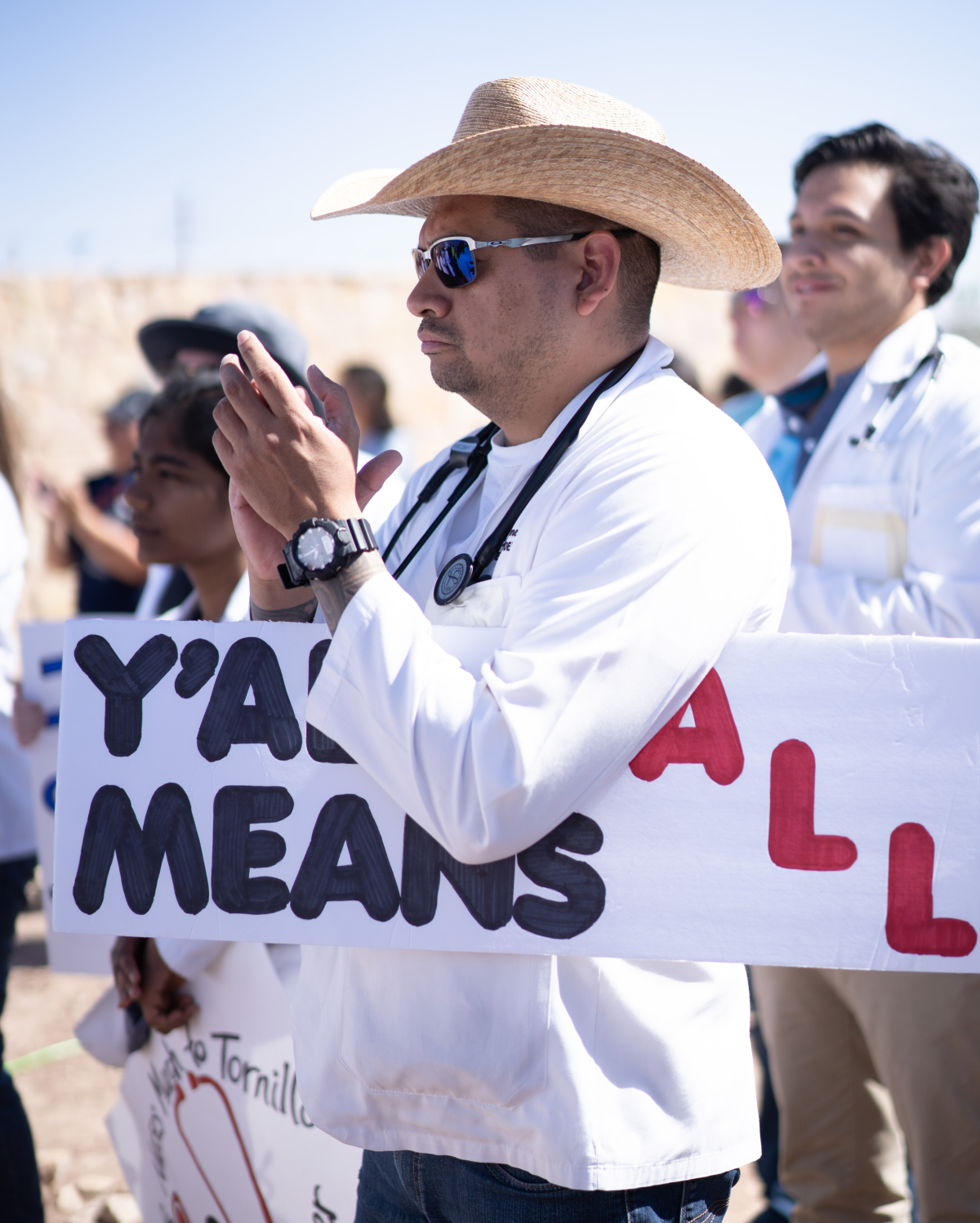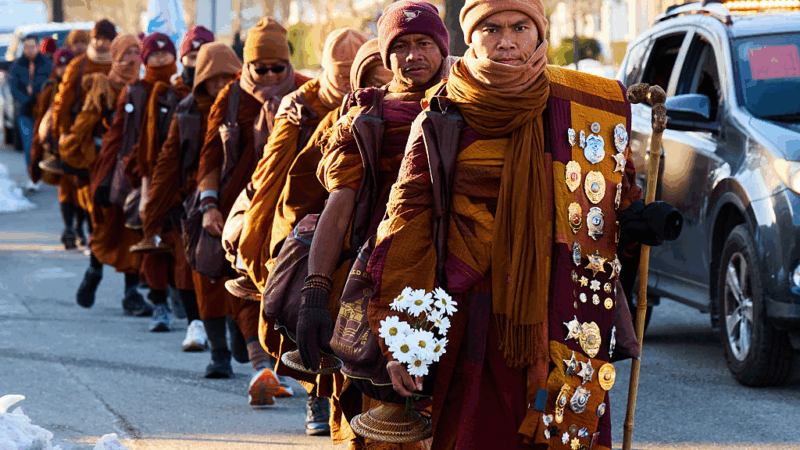Y’all, we need to talk about ‘y’all’
Sorry, yinz. Fuhgeddaboudit, you guys: In the past 20 years or so, “y’all” has gone from being a Southernism to become America’s favorite way to use the second person plural, according to linguists.
“Y’all has won,” says Paul E. Reed, a linguist at the University of Alabama who studies Southern American English and Appalachian English.
Admirers appreciate y’all’s tidiness and utility. In particular, Reed says, young people across the U.S. seem to love y’all.
“It’s expanded much more outside of the South” among people who are under 40 years old, he says.
Long-term migration patterns have also helped y’all spread, from Black Americans who brought it with them out of the South during the Great Migration, to Northerners and others who have more recently adopted the term after moving to the South.
“It feels like home when I hear it,” says Kelly Elizabeth Wright, an assistant professor of language sciences at the University of Wisconsin-Madison who grew up in Tennessee. “It’s from where I was raised. But it makes me feel included and welcome. And I think that’s part of why people are embracing it, because it has this capacity to make others feel included and welcome.”
Where did y’all come from?
“It’s essentially as old as American English in a lot of ways,” Wright says.
The word has thrived because it’s utilitarian, filling a gap in standard English. We use y’all — and relatives like yinz (for those in Pittsburgh) and youse — because the language has long lacked a satisfying plural pronoun for “you.”
“Basically, all of the non-mainstream varieties are better than the mainstream variety, because ‘you’ being for plural is confusing,” Reed says.
There are competing (and in cases, complementary) ideas about y’all‘s origin. Many U.S. linguists believe that the American version of y’all likely developed from two sources that reinforced one another, according to Wright and Reed. They use technical terms like simultaneity and calque to describe it; the idea is that one path began in Britain, and the other in West Africa.
In the north of the British Isles, people sometimes combined ye, a second person plural pronoun for you, along with aw, meaning all. An example found in a letter dating from the 1700s suggests that Scots-Irish immigrants brought their version of y’all to Appalachia and the South. Around that same time, enslaved people who were being taken to the South from West Africa brought their own unique term that literally translates to “you all,” Reed says.
“I am like a huge nerd,” Wright says. “I love that both of these things can be true, that it can be from Black people and Scots-Irish settlers all at the same time.”
“I’m not trying to be a fence sitter, but I think they’re both extraordinarily plausible,” Reed says.
Another theory notes that written instances of y’all date to 17th century England, as far back as a 1631 poem. But Reed and other linguists say it’s not clear whether those examples exactly mirror the meaning and usage of the modern y’all.

Why are y’all using y’all so much?
Y’all is on a popularity streak. It’s been springing up as far away as Australia, and executives are being trained to adopt “y’all” to be more inclusive.
In many settings, y’all is casual yet respectful — a rare bird in today’s online and real-world discourse. That has helped it grow, says Ellie Campbell, a law professor and reference librarian at the University of North Carolina at Chapel Hill who specializes in Southern studies.
“It’s been picked up both by queer communities and allies to kind of talk about building broader community in the South,” she says.
“As we were becoming more gender inclusive,” Wright says, “y’all became very productive and expansive and embraced by lots of different groups of people, especially people from different ethnic and regional backgrounds, different ages.”
“I think it’s also really central in music,” Campbell adds. “We hear it all over country music. We also hear it all over hip-hop.”
Some people might not like y’all. But few words can span the gap from Bing Crosby and Dolly Parton (both of whom sang the bluegrass standard “Y’all Come“) to the Wu-Tang Clan (who echoed Jimmy Spicer’s “Dollar dollar bill, y’all” line on C.R.E.A.M.).
Citing hip-hop’s dominant status, Campbell says: “That’s really carried [y’all] really throughout the world. Certainly it’s taken it out of the disenfranchised communities and into other spaces.”
Part of the reason for its popularity in music, Reed says, is that y’all is easy to work with. It’s a single syllable with mainly vowel sounds, making it easy to fit into melodies and sing.
Another reason, he adds, is that y’all is simply part of the native tongue of a lot of creative artists, “both in R&B and hip-hop and rap, and country music and bluegrass.”
Y’all went mainstream
Wright says she’s excited to watch y’all spread. And in many ways, her own experience with y’all reflects the broader story.
“I was very explicitly drilled not to use it” as a young student, she says. “I was told, ‘This was bad. This was ungrammatical.'”
That changed about 10 years ago, when she went to graduate school and heard younger people using y’all with abandon.
“People loved it,” Wright says. “So I’ve kind of worked in those last 10 years to get it back in my own vocabulary.”
Wright says y’all is benefiting from a process called diffusion, as it grows beyond its former geographic boundaries — a process that’s very difficult to predict.
“So being able to watch this happen in real time, it’s like a celestial event or something for an astrophysicist, it’s like this is a once-in-a-lifetime thing.”
When someone who’s new to the South hears y’all being used in North Carolina, Campbell says, they often chuckle.
“They’ve only ever seen somebody use it in a film or a country music song or something,” she says. But before long, she adds, “they get used to it and they pick it up.”
Buddhist monks head to DC to finish a ‘Walk for Peace’ that captivated millions
The group of Buddhist monks is set to reach Washington, D.C., on foot Tuesday. The monks in their saffron robes have become fixtures on social media, along with their rescue dog Aloka.
Trump is threatening to block a new bridge between Detroit and Canada from opening
President Donald Trump on Monday threatened to block the opening of a new Canadian-built bridge across the Detroit River, in his latest salvo over cross-border trade issues.
Ghislaine Maxwell appeals for clemency from Trump as she declines to answer questions
Maxwell declined to answer questions from House lawmakers on Monday, but indicated that if President Trump ended her sentence, she was willing to testify that neither he nor former President Clinton had done anything wrong in their connections with Epstein.
Lindsey Vonn says she suffered ‘complex tibia fracture’ in her Olympic downhill crash
The 41-year-old star said her torn ACL was not a factor in her crash. "While yesterday did not end the way I had hoped, and despite the intense physical pain it caused, I have no regrets," she wrote.
Guerilla Toss embrace the ‘weird’ on new album
On You're Weird Now, the band leans into difference with help from producer Stephen Malkmus.
Nancy Guthrie search enters its second week as a purported deadline looms
"This is very valuable to us, and we will pay," Savannah Guthrie said in a new video message, seeking to communicate with people who say they're holding her mother.





